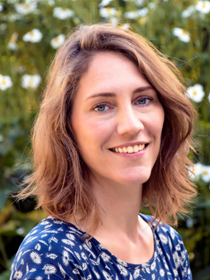Do people with serious mental disorders benefit from cognitive training?
How can people with serious mental disorders best be helped? By cognitive training combined with brain stimulation, researchers Lisette van der Meer, Anika Poppe and Marieke Pijnenborg suspect. Recently, the three received a grant from the Dutch Brain Foundation to further investigate the effectiveness of these treatments.
People with a serious mental disorder, such as schizophrenia or bipolar disorder, often experience various problems in daily life. Think of difficulties with household tasks, self-care or participation in society. Earlier research shows that cognitive remediation (CR) – a method by which cognitive functioning is improved through training, exercise and instruction – positively affects the daily lives of people with psychosis.

Cognitive training and brain stimulation
Reason for Lisette van der Meer – assistant professor at the department of clinical and developmental neuropsychology and senior researcher at Lentis – to plan to investigate to what extent people with serious mental disorders may also benefit from such treatment. Additionally, she will investigate whether CR training is more effective when combined with so-called ‘mild brain stimulation’ in which clients' brains are stimulated by means of a weak direct current.
Dutch Brain Foundation Grant
A pilot study by PhD candidate Anika Poppe showed promising results. It turned out that the treatment combination is feasible for people with serious mental disorders and that these people feel they benefit from the treatment. A grant from the Dutch Brain Foundation (500,000,- euros) that Van der Meer recently received together with Poppe and Marieke Pijnenborg, allows her to investigate the effectiveness of CR training and brain stimulation in a large-scale randomized controlled trial.
Participating again
Van der Meer hopes that with her research she can contribute to people with serious mental disorders experiencing fewer complaints and that their participation in society is promoted. ‘This group of people does not seem to count in our society. I hope that with this treatment we can offer them opportunities to fully participate in society’.
More news
-
03 February 2026
‘Such willpower’
-
20 January 2026
Alcohol, texting, and e-bikes
-
13 January 2026
Lonneke Lenferink joins The Young Academy


